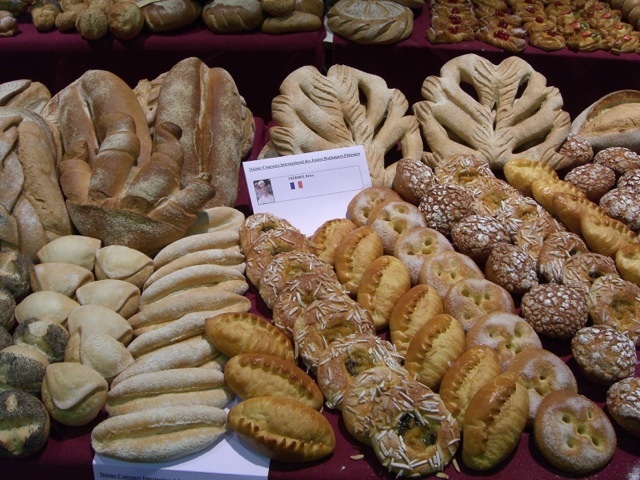
Are carbs an evil temptation or a nutritional necessity? Well, that depends on what kind of carbohydrates we are talking about. Some kinds promote health while others, when eaten often and in large quantities, increase the risk for diabetes and coronary heart disease. Low carb diets are good for achieving short term results, but in the long term, carbs along with other nutrients are necessary to supply energy for physical activity and proper organ function, fuel the nervous and muscular systems and keeping the body operating properly.
First, lets understand, What exactly is a Carb? Carbohydrates are basically sugars and starch. Once digested, they breakdown into glucose molecules used for fuel or stored as reserved energy lasting about 12-14 hours. If your body has more glucose then it needs, the extra will be converted to fat.
There are two categories of carbohydrates:
Simple carbs include fruit sugar, (Fructose) corn or grape sugar (dextrose or glucose and table sugar (sucrose) These are foods such as cookies, pastries, candy, fresh fruits, and sugary drinks.
Complex carbohydrates are carbs that are made up of three or more linked sugars. Think grains, legumes, vegetables such as potatoes, yams, corn, greens, cauliflower and broccoli, soy products, yogurt and skim milk.
Conventional wisdom has always been, simple carbs are bad and complex carbs are good. This has some merit in theory, but isn’t entirely accurate.
You may be familiar with the term glycemic index — this measures which foods will cause quick increases in blood sugar and which foods are gentler and slower to convert. French fries and white bread are classified as complex carbs but in reality these starches convert to blood sugar nearly as fast as pure table sugar, creating rapid spikes in your level of blood sugar. But fruits, which are technically simple carbs react similar to a complex carbohydrate and break down slowly causing a lower and slower change to blood sugar.
So what does this mean? Foods high on the glycemic index have been linked to risks of diabetes, heart disease, obesity and other illnesses when eaten in excess. Foods low on the glycemic index have a good source of fiber, and are usually high in nutrients with plenty of vitamins and minerals.
For Joe’s weight-loss journey he avoided most carbohydrates like the plague. There was no "little bit of pasta", "just a slice of bread" or small scoop of potatoes. He dropped a diet of bagels, buttered rolls, sandwich with potato chips, linguini and clam sauce, mashed potatoes and rice — not to mention coconut cream pie, chocolate chip cookies and his favorite peanut butter cups. This denial and detoxing was important to jump start the life changes that Joe needed to make and contributed to his quick and steady weight-loss. But while cutting out carbs is possible for a short amount of time, it's not a healthy option for any significant length of time. Joe looked better with these lost pounds but physically he felt something was missing — he experienced a loss of both physical and mental energy.
But since cutting out carbs had been such a huge part of his success, Joe was terrified to start adding these foods back into his diet. His biggest struggle was to give up some of his favorite foods —freshly baked bread from the oven filling the house with an incredible aroma, perfectly baked lasagna with a hearty bolognaise sauce sitting on the counter top, fresh whipped creamy roasted garlic mashed potatoes. How could he ever eat these items again with out over indulging?
So how did he conquer his fear and re-introduce carbs? It's not carbs that make us fat, it is the quantity which equals calories. The quest is all about reading your own body, feeding it what it needs with balance, moderation not total elimination. Joe is learning a new way of life, respecting his body while satisfying his passion and love for food. This week he after months of avoiding his food enemies, attacked them head on conquering yet another step to success.
Breakfast: Joe continues to eat fresh fruit in the morning but accompanies his banana or grapefruit with a small portion of high fiber cereal with skim milk or non fat Greek yogurt.
Lunch: He continues to eat lots of fresh vegetables with a small portion of protein, but will introduce some whole grain carbs such as brown rice, quinoa, whole grain crackers, a slice of whole wheat toast. Additionally a handful of roasted nuts or dried fruit for a treat.
Dinner: Joe will continue eating a lean protein along with healthy vegetables and a salad. Eating carbs at night is really not necessary as long as they are included in your daily plan. Joe has found that timing of eating certain foods plays a major role when trying to lose weight, so for him nighttime carbs was avoided.
Joe's Progress, Week 8:
STARTING WEIGHT: 276.4 LBS
WEEK 8 WEIGHT: 251 LBS
WEIGHT LOST WEEK 8: 3LBS
TOTAL WEIGHT LOSS: 25.4
